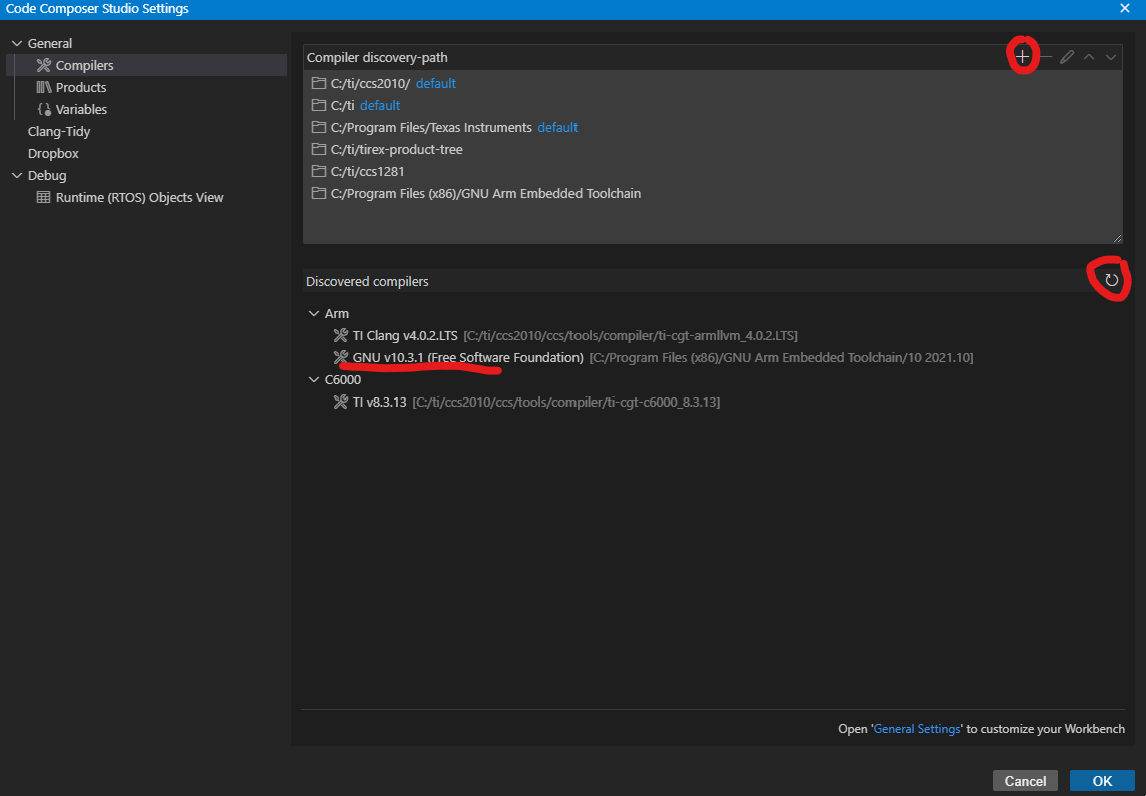Other Parts Discussed in Thread: SYSCONFIG, CC1312R, CC1314R10
Tool/software:
I have built on previous CCS verisons on Launchxl-cc1312, as well as for my own cards with cc1312r1 (FLAT)
The only choice I get is the CC1312-XL board that contains a CC1312R1F3 where I believe the only difference is the package and number of pins.
So, my current project will not migrate to ccs 20.1
Also, there are NO compilers supporting CV1312R1F3, which I understand is identical to the CC1312R1 programwise.....
How do I enable selection of this processor?
When staring a new project:
I note that CC1314 is both available as DEV board AND as device.
CC1312R1 is NOT available as device, but CC1312R1F3 IS!
Would adding CC1312R1 as device solve this problem??
Regards,
Gullik


